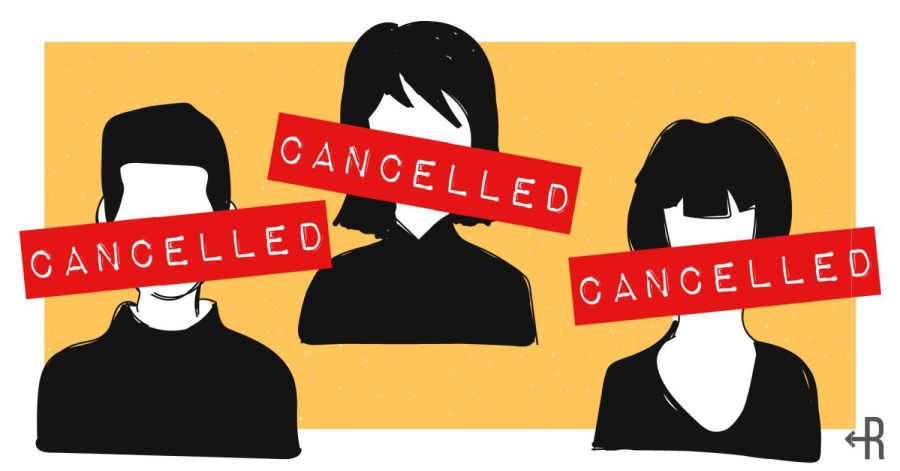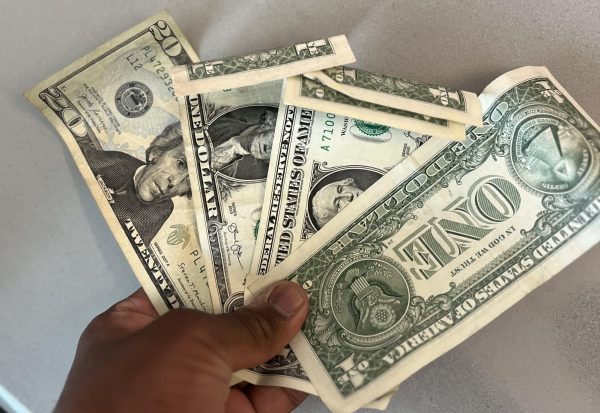Op-Ed: Cancel “Cancel Culture”
“CANCELED.” This word flooded the comment section.
As I scroll through TikTok, I land on a video of famous TikTok user, Amanda Lee Fago. Fago, better known as “Aunty Amanda,” uses her platform to foster a safe yet lighthearted space for her two million-plus followers. Most of her videos consist of her sharing different food combinations while giving heartfelt advice. Expecting to see the usual positive and supportive comments, I was surprised by the immense hate she was receiving. Fago was bombarded with vile phrases like “you’re a joke” and “I’m so embarrassed for you.” She was so-called “canceled” for attending a Donald Trump endorsed party and thus revealing her republican political identity. Her following went down and many of her followers continued to leave offensive comments. Others took more extreme measures and wrote negative reviews in hopes she loses her job as a registered nurse.
“Cancel Culture,” a practice that has grown more prevalent in the 21st century, revolves around publicly calling out someone to expose their controversial actions. Based on a CBS News article, it could mean: “withdrawal of support that informs other people that they should withdraw their support as well” or “silencing something or someone.” This phenomenon targets everyone from celebrities to ordinary citizens. However, the severity of being canceled differs for the two groups. Celebrities may have their product or craft boycotted, but an average person suffers dire effects like losing their job or enrollment at a school.
Cancel culture started to popularize over the summer of 2020, once protests like Black Lives Matter and global warming started to garner attention. According to the Pew Research Center, towards the end of September, 44% of Americans knew or have heard of the term “canceled.” The younger generation (under 30 years old) have heard a great deal or a fair amount about cancel culture (64%); conversely, the percent at which adults 30-49 have heard the term decreases to 46% and 34% for those 50 years and older. There are also statistics for political parties. Studies show that far-left liberal Democrats and far-right conservative Republicans are more likely to cancel someone than moderate Democrats and Republicans.
Additionally, a survey conducted by the Harvard CAPS-Harris Poll, revealed that 36% of Americans considered cancel culture to be a “big problem,” whereas 13% believe it is “not a problem.”
Many individuals have been canceled on various social media platforms. Social media users start by calling them out then resort to cyberbullying and harassment by commenting negative comments. This makes cancel culture ineffective since the comments are hurtful rather than being helpful and allowing the person to correct their faults.
Former CVHS student was accused of racism because old Snapchat videos and pictures of hers resurfaced. The posts reveal her using the N-word slur with her friends. These videos and images were then reposted on Twitter where people found the school she attended and contacted the principal. Others continued to shame and bully her by leaking her address on the internet. Even though what she did was immoral and extremely insensitive, canceling someone by exposing their private information does not teach them what they did wrong in an efficient way, it just puts them in danger.
A-list celebrities have also gotten canceled as well. The most recent celebrity canceled was actor Jake Gyllenhaal. After his singer ex Taylor Swift released her new song and music video “All to Well” exposing how he was older than her and a bad boyfriend, he was deemed canceled. He was targeted on social media where Taylor Swift fans would give ratings to his new movies (The Guilty) and was told to kill himself. He did not do anything wrong – Taylor Swift was 18 years old and you can’t cancel someone for being a bad boyfriend. How does telling someone to kill themself help them learn from their mistake?
Apart from canceling someone because of a difference in opinion, like in the case of Amanda Lee Fago, many see cancel culture as a tool to hold others accountable for their actions. However, it has not helped improve the conduct of those who were canceled; in fact, it only exacerbates the situation. This act ignores the root problem: these individuals have acted inappropriately and are in need to be educated. Punishing them evokes fear and shame, however, in the long term, it does very little to help improve their condition.
Canceling someone denies them the right to be forgiven and does not give them any chance to correct their behavior. Rather than resorting to social execution through harsh language, we as a society should help educate others by leaving constructive criticism. This way the individual is given the opportunity to understand their wrongdoing and learn how to correct it in the future.
Your donation will support the student journalists of Carnegie Vanguard High School. Your contribution will allow us to cover our annual website hosting costs and fund field trips, competition fees, and equipment. We appreciate your support!
Hi! My name is Nour Chibani. I am a senior who enjoys debating, writing, and singing.






